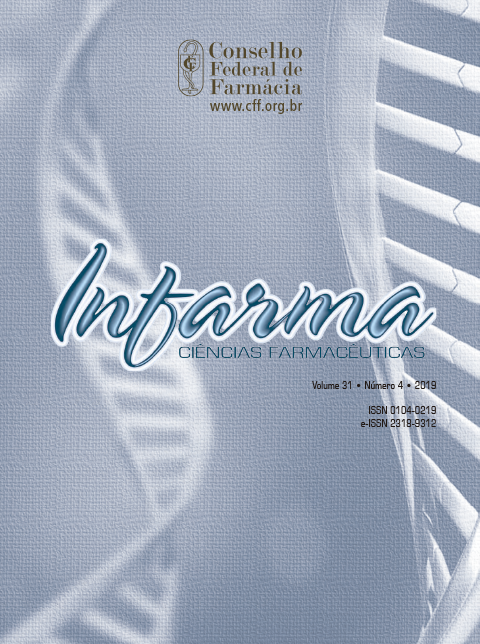LEGAL ASPECTS AND QUALITY OF A SOURSOP HERBAL
DOI:
https://doi.org/10.14450/2318-9312.v31.e4.a2019.pp305-316Keywords:
phytotherapy, legal aspects, quality controlAbstract
The use of plants as a medicinal source has a very high socio-economic relevance in the quality of life of low-income communities, due to their high availability, low toxicity, minimal risk of side effects and especially low costs and/or no onus compared to industrialized medicines. However, these products are susceptible to contamination from collection to handling. Therefore, the present study aimed to evaluate the quality and legal aspects of the products based on soursop, obtained from different pharmacies in the city of Cuité, PB, Brazil. The legal aspects were evaluated using the specific resolutions of the National Agency of Sanitary Surveillance (Anvisa). The counting of viable microorganisms was carried out by the in-depth plate counting method and the identification of the pathogens, by sowing the samples in selective culture way, followed by confirmation using biochemical tests. Microscopic analysis were performed to identify filamentous fungi. The product presented legal disagreements. From the microbiological point of view, the samples showed acceptable limits by the Brazilian Pharmacopoeia for fungi and bacteria, being identified the fungus Cladosporium spp., and Fonsecae pedrosoi. It is necessary a higher and more efficient inspection for this type of product so that there is a more excellent guarantee of patient safety.
Downloads
Published
How to Cite
Issue
Section
License
Authors who publish in this journal agree to the following terms:
- Authors retain the copyright and grant the journal the right of first publication, with the work simultaneously licensed under the Licença Creative Commons Attribution which allows the sharing of work with acknowledgment of authorship and initial publication in this journal.
- Authors are authorized to take additional contracts separately, for non-exclusive distribution of the version of the work published in this journal (e.g. publish in institutional repository or as a book chapter), with acknowledgment of authorship and initial publication in this journal.
- Authors are allowed and encouraged to publish and distribute their work online (e.g. in institutional repositories or on their personal page) at any point before or during the editorial process, as this can generate productive changes as well as increase the impact and Citation of published work (See O Efeito do Acesso Livre ).


